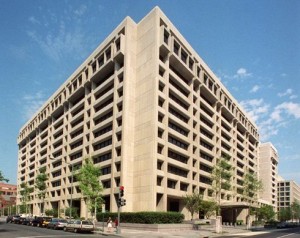“The purpose is to reassure them that what we agreed on last time is still there, and nothing has changed,” so declared an Egyptian government spokesman after announcing that an IMF delegation would return to Cairo to revive talks on a crucial 4.8 billion USD loan agreement aimed at salvaging Egypt’s economy. Change, however, would be the subtlest word to describe the botched facelift the country underwent since the IMF’s last visit on November 20. After weathering a month of bitter civil unrest, President Morsi successfully strong-armed an Islamist-backed constitution into law on December 25. In doing so, he left gaping wounds across Egyptian society and exposed his own politically perilous path to restoring the economy.

To understand the Brotherhood’s resistance to the Morsi administration’s economic recovery plan, simply look 500km east to Jordan. In July 2012, the Hashemite Kingdom struck a deal with the IMF for 2 billion USD in loans over a three year period in order to alleviate a skyrocketing deficit and dwindling foreign currency reserves due to Arab Spring unrest. Austerity measures pledged to the IMF, including cutting fuel subsidies, were determined behind closed doors, providing political fodder for the country’s burgeoning opposition movement, coincidentally led by the Jordanian branch of the Muslim Brotherhood, the Islamic Action Front.
With nearly 25% of Egypt’s population of 80 million living under the poverty line and dependent on government handouts, Morsi’s ability to meet the IMF’s demands is more than a tall order. Parliamentary elections must be held within two months according to the new constitution, leaving Morsi’s political opponents on the right and the left licking their chops at an opportunity to exploit economic woes and present themselves as a viable alternative to the Muslim Brotherhood’s Freedom and Justice Party.
Practically every aspect of the loan agreement threatens political blowback. In December, the Egyptian government failed to learn from their Jordanian counterparts, sparking outrage over the nontransparent manner in which they decided upon tax increases. Meanwhile, any austerity plan which raises taxes on alcohol, cigarettes, or shisha pipes threatens to spark an outcry of Islamization from Egypt’s newly-unified liberal opposition bloc. Cutting subsidies on fuel and other staples will negatively impact the country’s massive conservative lower class, threatening to push the Muslim Brotherhood’s own support base into the arms of its Salafist competitors.
Delaying such a politically risky loan agreement until after Egypt’s new legislature is elected would seem like the safest course of action. Unfortunately for the Morsi administration, the month of civil unrest which occurred during the constitutional referendum period plunged Egypt’s economy into an even steeper dive and in urgent need of life support. In just 10 days after the constitution was ratified, the Egyptian pound had devalued to record lows against the dollar, forcing the government to hold currency auctions to stave off its rapidly depleting foreign exchange reserves — reserves which had reached “critical levels,” according to officials.
It thus comes as no surprise that President Morsi turned to his always-dependable Muslim Brotherhood-linked allies in Qatar and Turkey for economic aid last week, which materialized in the form of two 500 million USD loans, respectively. But while Qatar’s petro-dollar pocketbook may seem bottomless, even Morsi understands that meeting the IMF’s terms is the only way to regain investor confidence and put Egypt’s economy on a sustainable path to recovery.
Despite the Morsi administration’s reassurances to the IMF that “nothing has changed” regarding the terms of their loan agreement, there is no denying that Egypt certainly has. Indeed, tightening the strings on the government’s already light purse will require the kind of unity not seen since the January 25, 2011 revolution.